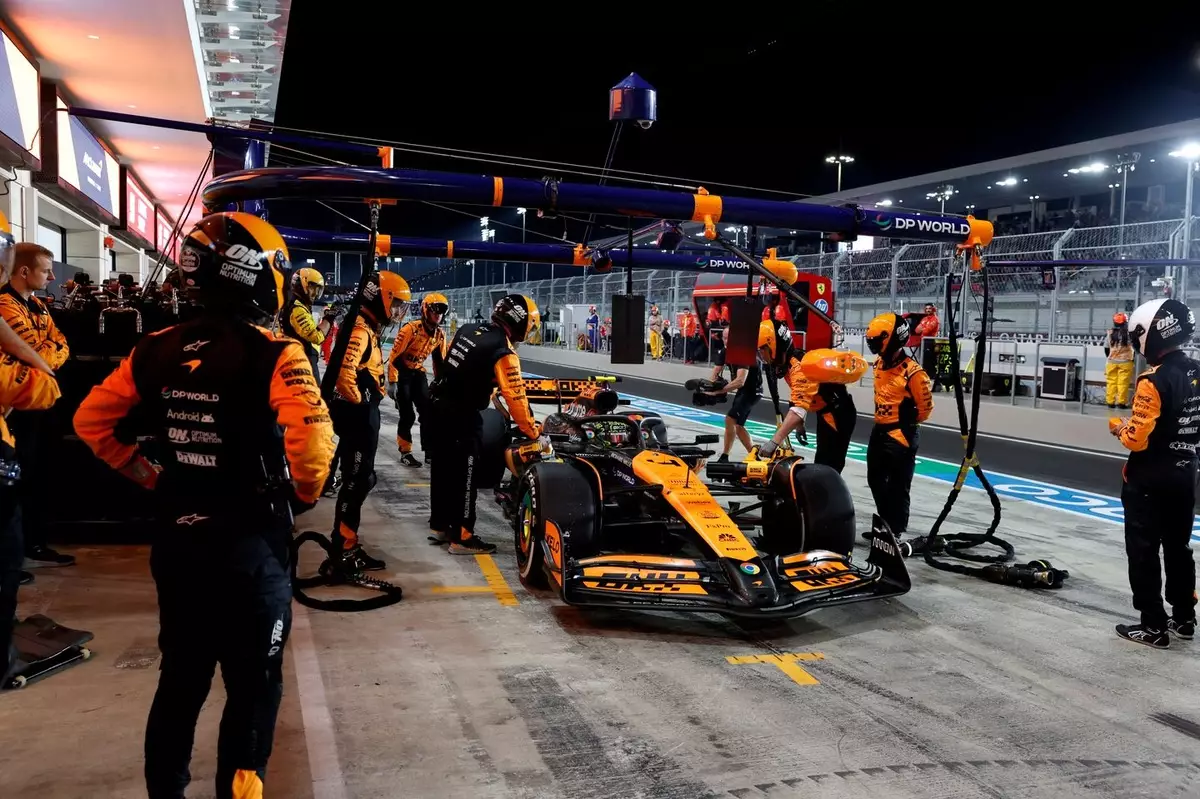Formula 1 racing is a sport defined by speed, precision, and the fine balance between risk and reward. However, as evident from recent events surrounding Lando Norris’s controversial 10-second stop-go penalty at the Qatar Grand Prix, the consistency and fairness of penalties imposed by the FIA (Fédération Internationale de l’Automobile) deserve a critical reassessment. This incident has sparked discussions among teams regarding the appropriateness of sanctions and their potential ramifications on championship standings, drawing attention to the need for a more judicious approach.
During the race, Norris failed to reduce his speed in response to the double yellow flags waved due to Alex Albon’s car becoming stranded. While acknowledging that the McLaren driver did err in this regard, team principal Andrea Stella expressed serious concerns about the severity of the penalty administered. He argued that the 10-second stop-go punishment was disproportionate to the infraction. The ramifications of such penalties extend beyond a single race, potentially impacting championship tallies and the performance of the involved teams.
Stella’s reflections post-race underscore a broader issue within Formula 1 regarding the clarity and proportionality of penalties. He stressed that strict adherence to rules must not come at the cost of fairness, emphasizing the need for the FIA to reflect on how these penalties are judged and enforced in the future.
The Need for Greater Clarity and Consistency
The inconsistency in applying penalties is a recurring theme in motorsport discussions. Both McLaren and Mercedes, represented by Toto Wolff, have articulated their discontent regarding the manner in which penalties were doled out during the Qatar GP. Wolff described the penalties as “brutal,” indicating a sense that the enforcement of these sanctions is not aligned with the gravity of the infractions committed. Such sanctions raise questions not only about the current season’s championship battle but also about how effectively the steering body is managing compliance among teams amidst the pressures of competitive racing.
Stella’s call for the FIA to engage in a review of penalty application practices reflects a broader sentiment among teams that the sports governing body must ensure its actions promote fairness and justification. The unpredictability of penalties can undermine the competitive spirit and risk alienating both teams and fans who invest tremendous effort and resources into the sport.
The consequences of disproportionate penalties can be detrimental to the overall integrity of Formula 1. A single strict penalty, such as that imposed on Norris, can drastically alter the trajectory of a championship race. Critics argue that maintaining fairness in the competition is essential for the sustainability of the sport. A fine balance must be struck between ensuring adherence to rules and protecting the essence of competitive racing.
While addressing the media, Stella pointed out that without a system of proportionate penalties, the integrity of the championship is at risk. The cumulative effect of heavy penalties can lead to situations where drivers feel increasingly pressured, potentially influencing their racing decisions and strategies in ways that deviate from natural competitive instincts.
The larger framework within which the FIA operates must be subjected to scrutiny as well. Team principals, such as Stella and Wolff, have expressed trust in the governing body to undertake necessary reviews while remaining conscious of its role in ensuring fairness. As they have indicated, changes to the racing director or structure should not overshadow the pressing need for systemic reform in how penalties are administered.
Ultimately, the future of Formula 1 hinges upon establishing a more equitable enforcement of rules that account for the context and severity of infractions. This suggests a pivot towards a more transparent approach to penalties, such as clear guidelines and a consistent application of sanctions across different teams and situations.
The conversation surrounding Lando Norris’s penalty serves as a critical juncture. It underscores an urgent call for reevaluation of how penalties are structured and imposed in Formula 1, particularly if the sport aims to uphold its reputation for fierce yet fair competition. Teams, fans, and the FIA must collaborate to forge systems that allow drivers to compete while understanding that the rules governing their actions are applied consistently and judiciously.


Leave a Reply